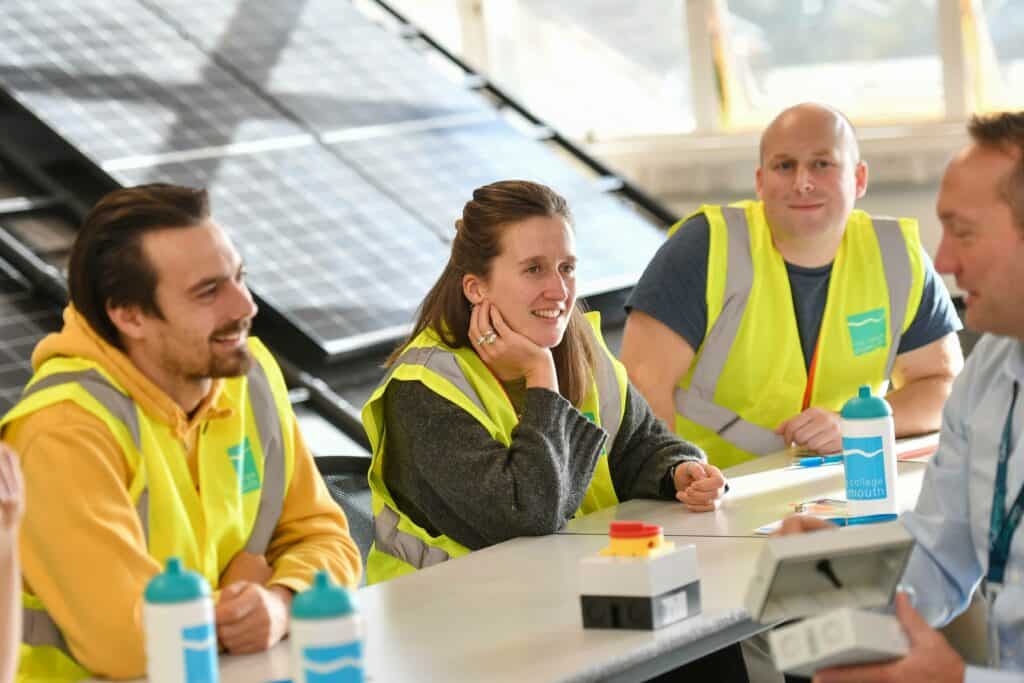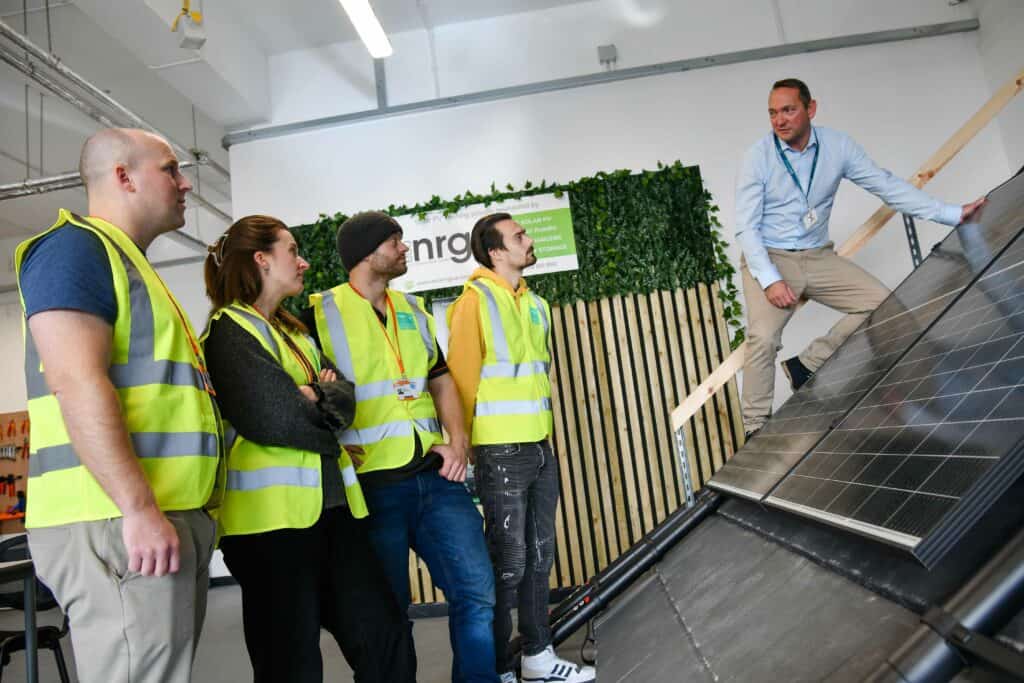Green skills is one of the fastest growing areas for skills and is essential for the sustainability of both our environment and our regional economy.
At the College, we are committed to our role in meeting the challenges our world faces.
 - PG18_6 - CCP - NOV_23-1024x683.jpg)
Green skills is one of the fastest growing areas for skills and is essential for the sustainability of both our environment and our regional economy.
At the College, we are committed to our role in meeting the challenges our world faces.
In 2021 City College Plymouth was the first college in the South West in calling for action to prevent a climate catastrophe by officially declaring a climate emergency and is putting in place a plan to become a carbon-neutral organisation.
In 2022, the College became the first college in the South West to partner with the Retrofit Academy to support the delivery of green construction skills training across the sector, then further built on this with the launch of a Green Construction Skills Bootcamp in 2023. To date, the students who have attended our Retrofit Skills Bootcamps have achieved a 100% pass rate.
The average annual recruitment requirement in the South West is set to average 3.2% per year, based on 2022 workforce levels, which is higher than the UK figure of 1.7%. This means that the construction industry would have to increase current recruitment by 7,640 new workers each year to deliver the expected work between the start of 2023 and end of 2027, equating to a total of 38,200 workers across this period. The majority of these roles range from green skills sectors such as retrofit to traditional skills such as wood trades and fit out, which has the greatest annual recruitment demand of 2,770 workers per year.
A key priority over the next 12 months will be to expand this provision and support key employers to upskill and recruit new staff, to meet essential retrofit objectives. We will deliver additional skills training at levels 2 through 5, including instruction on the operation of new technologies (such as drones and robots) to equip students to excel in this field.
The College has also invested significantly in electric vehicles (through the Strategic Development Fund the College has purchased three additional electric vehicles), as well as the technology to train in the installation of the electric charging points, solar, and battery storage. The College has continued to increase the breadth and regularity of this training through the development of its Green Skills Centre, which has increased the exposure to these new technologies, while also meeting the demand from the sector.
 - PG18_6 - CCP - NOV_23(1)-1024x683.jpg)


 - ELECVC - CCP - NOV_23(1)-1024x683.jpg)
To ensure that the College is aligned to the city, we have representation on the Plymouth Green Skills Board and have worked closely with other stakeholders to develop the Plymouth Green Skills Action Plan.
Aligning ourselves with the Plymouth Green Skills Plan will ensure that we target the largest producers of carbon, for example buildings (construction and maintenance), power and heat (solar, hydrogen, heat pumps), mobility (electric vehicle charging and installation), and waste (environmental and general).
In addition, the College is involved in the Celtic Sea Offshore Wind project and to support this strategic priority we will work collaboratively with the Floating Offshore Wind (FLOW) accelerator to meet the demands of this industry. The longevity of the renewables sector spans over 25 years, with an increase in demand throughout, and will include everything from design, through to engineering and build, before commissioning, maintenance and decommissioning at the end of the life span. This will require a range of skills across multiple sectors, including civil, electrical and mechanical engineering through design, HR and project management specialisms.
While the FLOW developments in the Celtic Sea represent a significant long-term opportunity for the HoTSW region, as well as the wider South West and South Wales, many of the skills and capabilities needed in the supply chain will be transferable between engineering sector applications.
Therefore, the College has taken a proactive stance to ensure that students who qualify through one of the many engineering courses on offer can access this exciting sector, through a collaborative agreement with a local maritime independent training provider.
The offer will now include added value to students’ core programmes allowing them to work at sea by undertaking the necessary accredited courses.
By investing in the development of relevant transferable skills and supporting them with the necessary at-sea qualifications, the College will ensure that the necessary expertise is available across the entire FLOW supply chain. The growth and development of the FLOW in the Celtic Sea represents a long-term employment opportunity and it is crucial that we ensure that younger generations, along with those transferring from fading industries, have the required knowledge and skills to keep the industry evolving, not just locally, but also on a national and international scale.
Expansion of Retrofit provision with targeted approach to engage employers in upskilling in this key sector.
 - ELECVC - CCP - NOV_23-1024x683.jpg)
Kings Road, Devonport, Plymouth, PL1 5QG
Give us a call on: 01752 305300
E-mail us at: info@cityplym.ac.uk